One of my favourite film directors, Richard Samuel Attenborough, died on Sunday 24th of August, 2014, less than a week away from his 91st Birthday. He was the older brother of Sir David Attenborough, a naturalist and broadcaster, and John Attenborough. John Attenborough died in November 2012.
 Baron Attenborough was born in the beautiful city of Cambridge, in the county town of Cambridgeshire, England, United Kingdom; on the 29th of August, 1923. Born into an intellectual and heroic family; his mother was a founding member of the Marriage Guidance Council, and his father a scholar and academic administrator who was a fellow at Emmanuel College, Cambridge, and wrote a standard text on Anglo-Saxon law; Richard Attenborough’s parents saved two Jewish girls during the Second World War and later adopted them once they discovered the girls’ parent’s were killed off. Richard Attenborough served in the Royal Air Force (RAF), during the Second World War. Soon he joined the RAF Film Unit at Pinewood Studios, where in 1943, he worked with Edward G. Robinson in the propaganda film, Journey Together (1945). The Acting bug hit him, whilst still serving in the Air Force (where he sustained permanent ear damage), and the rest is history.
Baron Attenborough was born in the beautiful city of Cambridge, in the county town of Cambridgeshire, England, United Kingdom; on the 29th of August, 1923. Born into an intellectual and heroic family; his mother was a founding member of the Marriage Guidance Council, and his father a scholar and academic administrator who was a fellow at Emmanuel College, Cambridge, and wrote a standard text on Anglo-Saxon law; Richard Attenborough’s parents saved two Jewish girls during the Second World War and later adopted them once they discovered the girls’ parent’s were killed off. Richard Attenborough served in the Royal Air Force (RAF), during the Second World War. Soon he joined the RAF Film Unit at Pinewood Studios, where in 1943, he worked with Edward G. Robinson in the propaganda film, Journey Together (1945). The Acting bug hit him, whilst still serving in the Air Force (where he sustained permanent ear damage), and the rest is history.
I fell in love with the biographical epic tear-jerker Gandhi (1982), when I watched it as a child in the early-mid 1980’s. And as we had the video tape of Gandhi, at home, I have watched it a zillion times since then. Plus, when I was studying for my M.A. in International Cinema (2002-2003); at the University of Luton, Luton, UK; I got a chance to study this, three hour long, great epic, scene by scene. It was for my mini-dissertation, titled Historical, Heritage and Hackneyed Cinema: British and Hollywood Cinema set in early twentieth Century India, of 10,330 words, in my second semester. Gandhi was a movie that fell under ‘Historical Cinema’, where I did an analysis of racial tension (under the chapter White Bred over Brown Bred: Colonial Relations), the significance of land, specifically the ‘Train’ in Gandhi (under the chapter Landscape and it’s significance), and a character psychoanalysis (under the chapter Gender & Sexuality). Gender & Sexuality was the most crucial chapter in my mini-dissertation, which paved the way, to do a complete psychoanalysis on gender, for my final dissertation (on Hitchcockian Cinema) of 25,000 to 30,000 words, in my final semester.

Richard Attenborough and actor Ben Kingsley at the Oscars, in 1983.
With their wins for Best Picture, Best Director & Best Actor, for GANDHI (1982).
Attenborough’s directorial epic, Gandhi, is no doubt the best film to come out of the 1980’s (see my post My Favourite movie by decade, My Favourite Oscar Winner per decade from March 2014). The movie was based on the non-violent struggle of Mohandas Karamchand Gandhi, India’s peace activist and modern day saint, who, during the British Raj, drove away the British colonist, by hurting their conscience, instead of acting against them through violence. Of course the movie depicts him as a perfectionist, but he was a human being, and no human being is perfect. He had his little flaws, yet he was a truly great human being. Gandhi deservedly won eight Oscars (out the eleven nominated for) in 1983, including for Best Picture, Best Director, Best Actor, Best Original Screenplay and Best Cinematography, among others. Gandhi won over 40 other awards in various other award functions (in various categories), including at the BAFTA’s and the Golden Globes.
Richard Attenborough’s acting career began on stage, where he met his future wife, stage actress Sheila Sim, with whom he appeared on the West End production of Agatha Christie’s The Mousetrap. This production led to the two falling in love and they were married in 1945. And they were happily married until Attenborough’s death on Sunday. Sheila Sim is currently suffering from senile dementia, which she was diagnosed with back in June 2012, just after her 90th Birthday. Richard Attenborough, who also attended the Royal Academy of Dramatic Art, remained a Patron until his death.

Richard Attenborough with Laura Dern and Sam Neill in a scene from JURASSIC PARK (1993)
As a teenager, in New Delhi, in 1994, I watched Steven Spielberg’s Jurassic Park (1993), on video tape, and later on the Big Screen, within that year. I thought it was a really good Sci-fi, B-movie. And I loved the way Attenborough’s character, Prof. John Hammond, explains the process of extracting blood (Dinosaur DNA) from a mosquito that had been preserved in amber fossil. At that age, DNA extraction and cloning really impressed me, something I learned as a kid in school in the late 80’s. The rest of the film was a visually spectacular drama, loved the CGI of the time, especially the creations of pre-historic animals, but what I found the most amazing was Prof. Hammond’s detailed explanation. I wasn’t so crazy about the sequels, The Lost World: Jurassic Park (1997) and Jurassic Park III (2001), though. Yet I wouldn’t mind checking out the latest instalment, Jurassic World, which is yet to be released.
 Richard Attenborough starred in a lot of great movies throughout the 40’s, 50’s and 60’s, including In Which we Serve (1942), Brighton Rock (1947), The Man Within (1947), The Guinea Pig (1948), Boys in Brown (1949), Eight O’Clock Walk (1954), SOS Pacific (1959), The Angry Silence (1960), The Dock Brief (1962), The Great Escape (1963), The Flight of the Phoenix (1965), Doctor Dolittle (1967) and The Magic Christian (1969) with Ringo Starr of ‘The Beatles’, to name a few out of zillion he’s starred in. Brighton Rock, The Great Escape, The Flight of the Phoenix, Doctor Dolittle, 10 Rillington Place (1971), Jurassic Park and Miracle on 34th Street (1994), are amongst his most popular films as an actor. I have a vague memory of watching The Great Escape as a little kid, but am unsure. Anyway, I re-watched it more recently and loved it too. This excellent flick, based on a true story, is about several escape attempts by allied prisoners of war from a German POW camp, during World War – II.
Richard Attenborough starred in a lot of great movies throughout the 40’s, 50’s and 60’s, including In Which we Serve (1942), Brighton Rock (1947), The Man Within (1947), The Guinea Pig (1948), Boys in Brown (1949), Eight O’Clock Walk (1954), SOS Pacific (1959), The Angry Silence (1960), The Dock Brief (1962), The Great Escape (1963), The Flight of the Phoenix (1965), Doctor Dolittle (1967) and The Magic Christian (1969) with Ringo Starr of ‘The Beatles’, to name a few out of zillion he’s starred in. Brighton Rock, The Great Escape, The Flight of the Phoenix, Doctor Dolittle, 10 Rillington Place (1971), Jurassic Park and Miracle on 34th Street (1994), are amongst his most popular films as an actor. I have a vague memory of watching The Great Escape as a little kid, but am unsure. Anyway, I re-watched it more recently and loved it too. This excellent flick, based on a true story, is about several escape attempts by allied prisoners of war from a German POW camp, during World War – II.
In the late 60’s, Richard Attenborough, made his directorial debut, with the musical, Oh! What a Lovely War (1969). His next directorial venture was Young Winston (1972).
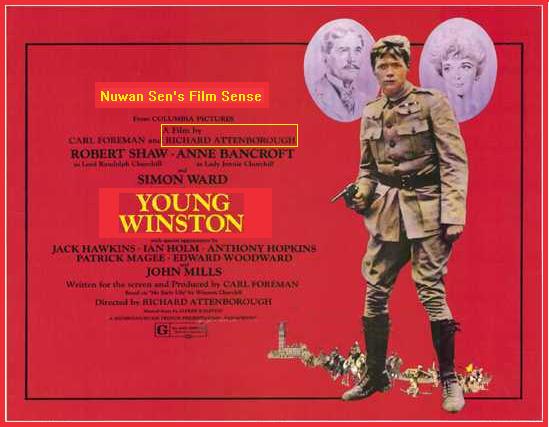 In England, in 2002-2003, I watched Attenborough’s previous biographical epic, Young Winston (1972), at the University Library. This movie deals with former British Prime Minister, Winston Churchill’s, younger days, stationed in India and Sudan, as a cavalry officer. I really enjoyed it. Though no where near as great as Attenborough’s magnum opus, that was Gandhi, Young Winston was still a pretty good movie.
In England, in 2002-2003, I watched Attenborough’s previous biographical epic, Young Winston (1972), at the University Library. This movie deals with former British Prime Minister, Winston Churchill’s, younger days, stationed in India and Sudan, as a cavalry officer. I really enjoyed it. Though no where near as great as Attenborough’s magnum opus, that was Gandhi, Young Winston was still a pretty good movie.
Besides Young Winston and Gandhi, as a director, Richard Attenborough, brought out some amazing biographical epics, like A Bridge Too Far (1977); about an unsuccessful Allied military operation, fought in the Netherlands and Germany during World War – II; Cry Freedom (1987); based on the life and death of prominent anti-apartheid activist Steve Biko; Chaplin (1992); on film genius, Sir Charles Chaplin, a.k.a. Charlie Chaplin; Shadowlands (1993); on the heart-rending love story between Oxford academic C. S. Lewis and American poet Joy Davidman, and her tragic death from cancer; In Love and War (1996) on Ernest Hemingway’s experiences during the First World War; and Grey Owl (1999), another bio-pic, this time about Archibald Belaney, a.k.a. Grey Owl, who was a British schoolboy who turned into an Indian trapper, and called himself ‘Grey Owl’.
Richard Attenborough didn’t just make bio-pics, he made a few out and out fictional movies as well, and his last film was Closing the Ring (2007).
 Down Under, in Sydney, in 2008, I watched Closing the Ring (2007), on the Big Screen, Attenborough’s last venture. Pretty Good but far from great. Starring Shirley MacLaine, Christopher Plummer, Mischa Barton, Stephen Amell, Neve Campbell, Pete Postlethwaite and Brenda Fricker. The biggest mistake Attenborough did, was to take in the muscular pretty boy, Stephen Amell, who can’t act for peanuts. He just voiced the dialogues expressionlessly, like a pretty mannequin, a Barbie doll. The story was interesting enough though, set during the Second World War (in flashbacks) and the 1990’s; set in Belfast, Northern Ireland, UK and Michigan, USA. Towards the end, it becomes a bit cheesy and overtly melodramatic. But still an enjoyable enough watch, thanks to the veteran actors in it.
Down Under, in Sydney, in 2008, I watched Closing the Ring (2007), on the Big Screen, Attenborough’s last venture. Pretty Good but far from great. Starring Shirley MacLaine, Christopher Plummer, Mischa Barton, Stephen Amell, Neve Campbell, Pete Postlethwaite and Brenda Fricker. The biggest mistake Attenborough did, was to take in the muscular pretty boy, Stephen Amell, who can’t act for peanuts. He just voiced the dialogues expressionlessly, like a pretty mannequin, a Barbie doll. The story was interesting enough though, set during the Second World War (in flashbacks) and the 1990’s; set in Belfast, Northern Ireland, UK and Michigan, USA. Towards the end, it becomes a bit cheesy and overtly melodramatic. But still an enjoyable enough watch, thanks to the veteran actors in it.
A sad loss, with the death of a British gem, Richard Attenborough. Day after tomorrow, 29th August, 2014, would be his 91st Birth anniversary. He’ll be remembered forever through his great works. May he rest in peace.
Nuwan Sen’s Film Sense
















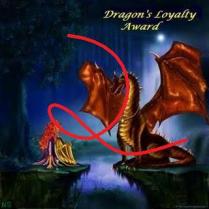


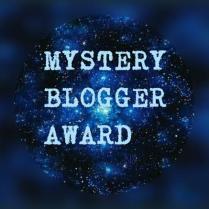
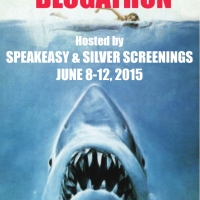
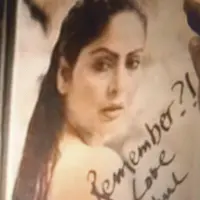

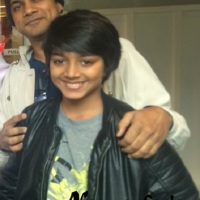
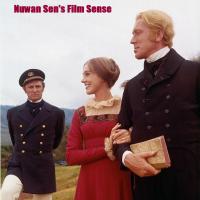





Awww, I’m sorry to see him go, but what a life! We will miss him.
So True!!
Fantastic tribute, Nuwansen.
Thank you Cindy.
While I don’t know him the same way that you did, I was very affected by his death. This is because Jurassic Park is one of my childhood favorites and to this day, his character is one that sticks out. I recognized his face immediately despite the fact that JP is likely the only place that I’ve ever seen him.
Thank you for the informative tribute.
You are very welcome buddy. Yes, I believe Spielberg did a very smart thing by getting such a respectable personality to work in one of his movies.
Thanks for reading.